Speaking with conviction is something that comes more naturally to some people than others. If you’re not one of those people who can easily assert your points and stand by what you believe in, you might be struggling to find your voice when it comes to speaking with conviction. It can feel like a scary thing to do; after all, what if someone challenges us or disagrees? What if they think we’re wrong? But being able to confidently state your beliefs and speak with conviction is an admirable quality.
However, speaking with conviction is a skill that is developed over time but one that can be learned quickly. Although speaking with conviction is indispensable for leadership credibility, it is important for everyone, no matter what field you work in or what role you play in the organisation. However, anyone can learn how to speak with conviction. Read on for some great tips regarding how to speak with conviction — no matter who you are right now!
8 Tips to Speak with Conviction
Speaking with conviction is essential because it allows others to know where we stand on an idea or topic without any doubt. When we speak with conviction, we are letting others know what we believe and why we believe it. This creates trust and reassurance while simultaneously creating an environment of collaboration and open communication. Whether you are working towards a leadership role, presenting new ideas at the company meeting, or interviewing for a job, speaking with conviction will take your performance to the next level. Let’s see how you can do that…
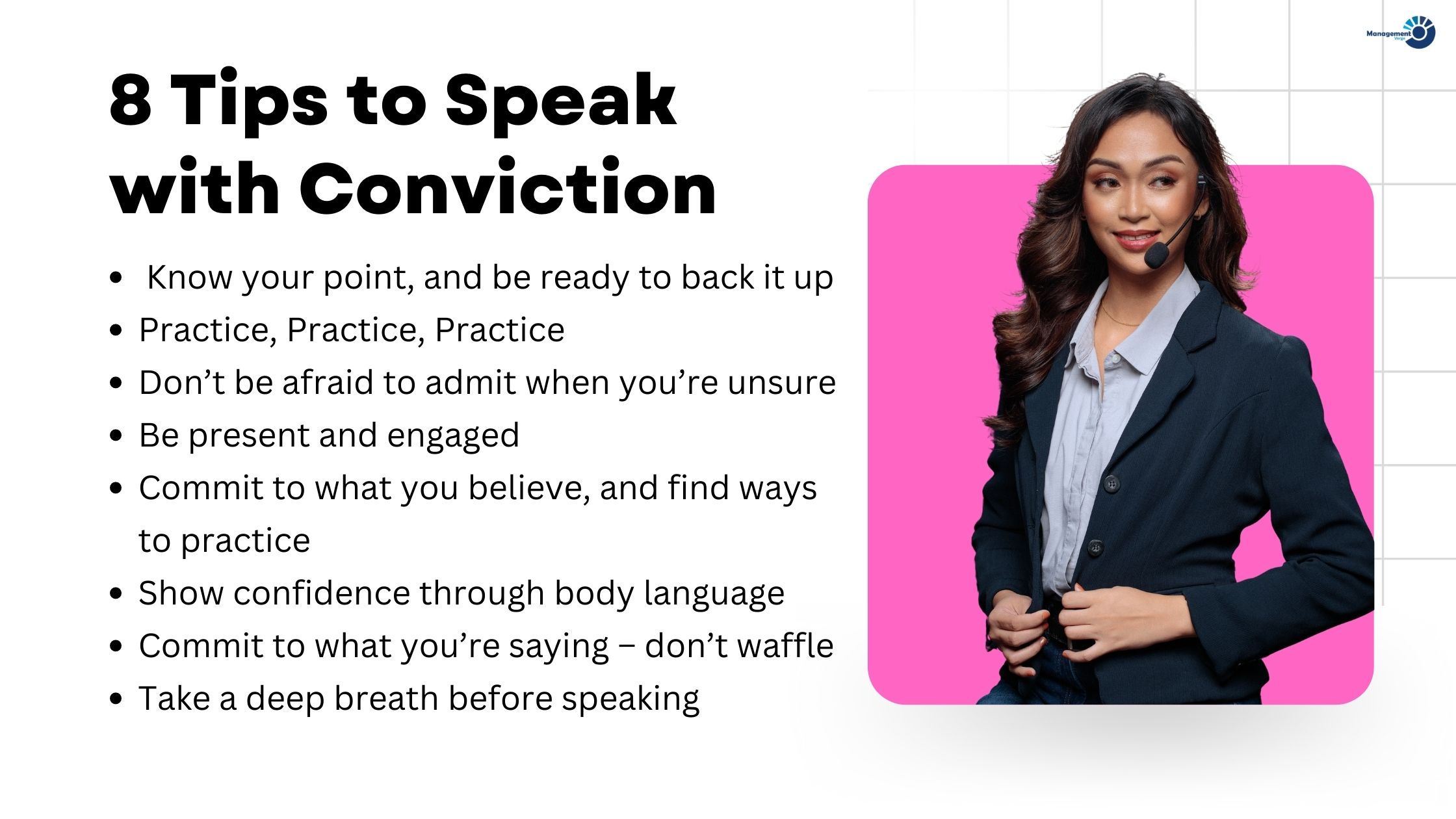
1. Know your point, and be ready to back it up
Being able to confidently state what you believe and why you believe it is essential in any conversation. It shows that you’ve thought about the topic and you’re not just speaking off the cuff. However, knowing your point and being ready to back it up doesn’t mean that you have to be an expert on the topic. You don’t have to know everything; you just have to have done your research. That way, you can be sure that what you’re saying is honest, accurate, and sincere. Even if you don’t know all the facts, you can still be confident in what you’re saying if you’re sure it’s the truth. Be ready to admit when you don’t know something, though. There’s nothing wrong with not knowing everything; even the most experienced and well-read people don’t know everything. Don’t be afraid to admit when you don’t know something; just be ready to research it and get ready to have a conversation about it.
2. Practice, Practice, Practice
Practice makes perfect. This is the best way to improve your public speaking skills. Practice in front of a mirror, practice with a friend, practice with a coach. Practice is the key to becoming an amazing speaker.
Practising in front of a mirror is one of the best ways to speak with conviction. It helps you see what you’re doing right and wrong and adjusts accordingly. It also helps you see how others might perceive you because the person in the mirror can’t talk back or interrupt your thoughts while they’re flowing, which can be helpful when it comes to working on stage presence and body language.
3. Don’t be afraid to admit when you’re unsure
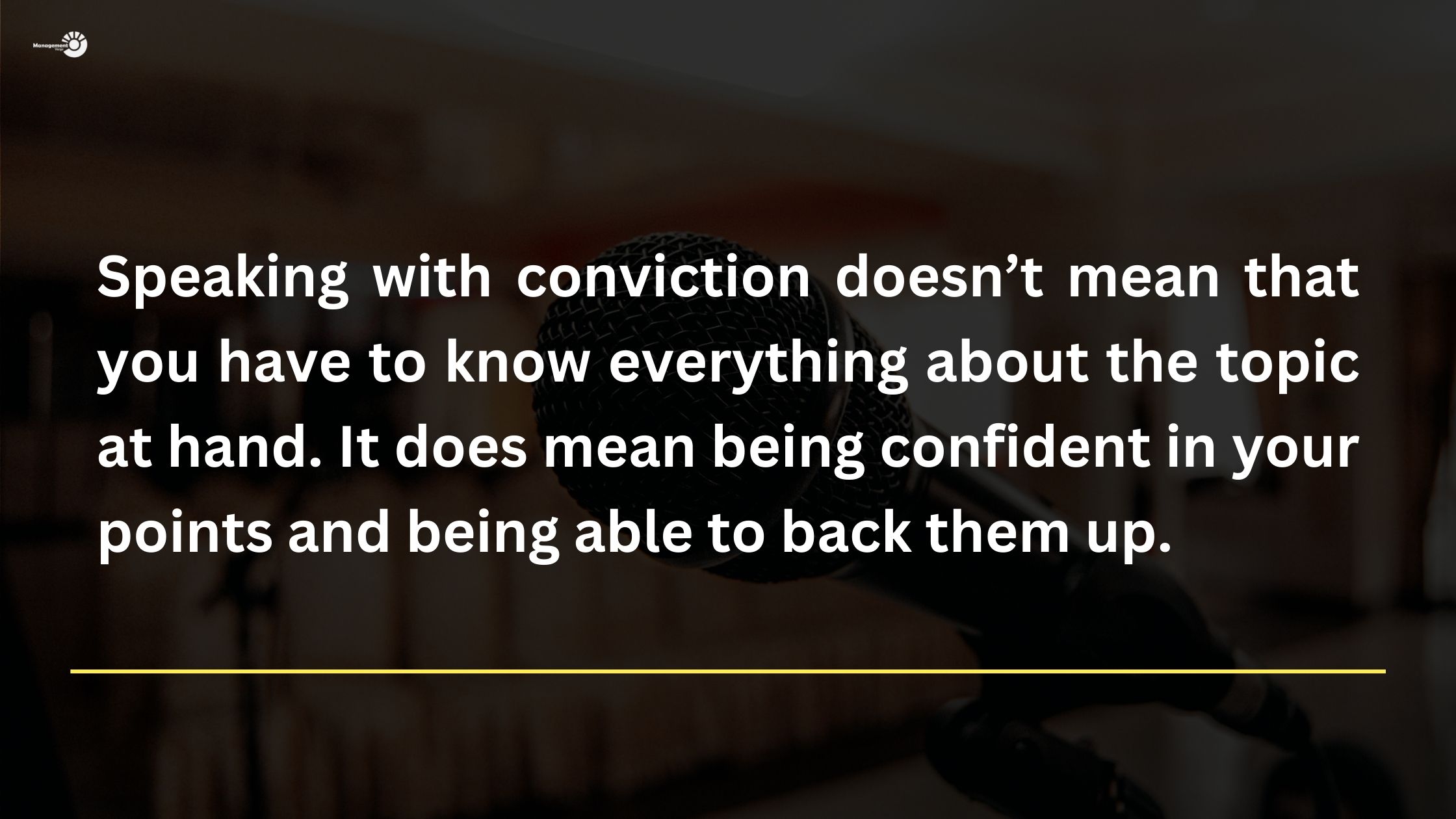
Speaking with conviction doesn’t mean you have to know everything about the topic. You don’t; nobody does. However, it does mean being confident in your points and being able to back them up. If you’re unsure about a certain point, then you might want to wait to discuss it until you can be confident in what you’re saying. There’s nothing wrong with admitting that you’re unsure; it just means that you’re being honest. If you’re unsure, you can phrase it as such. For example, “I’ve heard a lot of differing opinions on this. I’m not sure where I stand. What do you think about it?” This lets the other person know that you’re not being dishonest; you just don’t know everything.
4. Be present and engaged
A big part of speaking with conviction is being present and engaged in the conversation. If you’re not present and engaged, you’re likely to be missing out on important details, facts, and feelings. That’s not to say that you have to be constantly listening and responding to the other person. However, you do have to be attentive and prepared to jump in and respond when the time comes.
There are lots of ways to practice being present and engaged. You can speak in your natural voice rather than a rehearsed voice. You can also try to avoid distractions. If you’re on your phone while you’re in a conversation, it’s likely that you won’t be as present and engaged as you could be. Instead, try to be present and engaged. Let the other person know that they have your full attention.
5. Commit to what you believe, and find ways to practice
In order to speak with conviction, you need to commit to what you believe in. If you’re not ready to stand by what you’re saying or you don’t actually believe it, you’ll know. It’s one thing to be unsure about a topic and it’s another to be unsure about what you believe in. If you’re ready to commit to your points, you need to find things in your daily life that will help you to practice.
For example, if you want to be more environmentally friendly, start with your day-to-day life. Can you walk or cycle to work? Can you reduce your water usage? And can you use reusable bags when you go grocery shopping? These things don’t need to be over-the-top, drastic gestures. Instead, they can be small practices that will help you to commit to being environmentally friendly.
6. Show confidence through body language
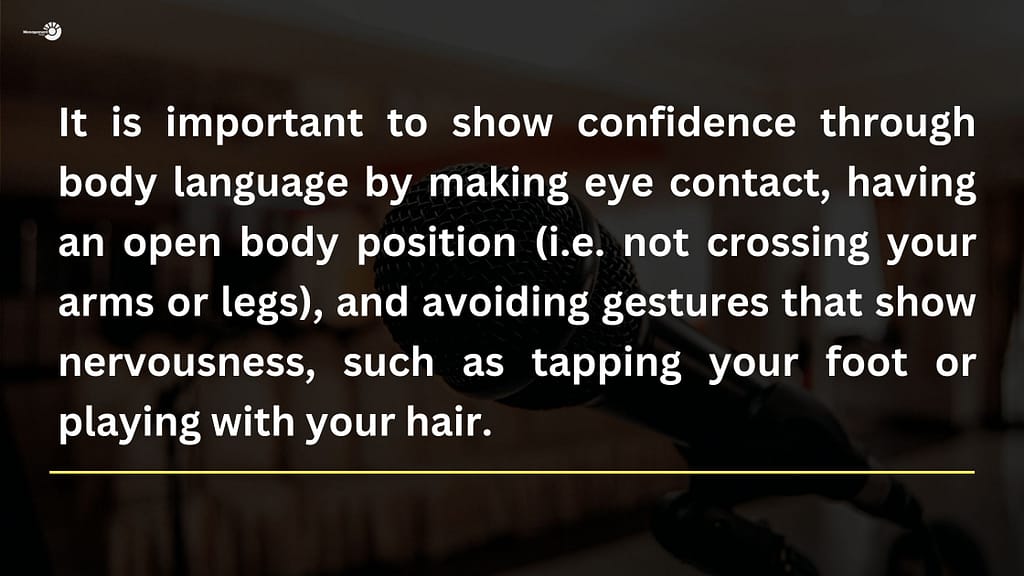
As well as being confident in what you’re saying and ready to commit to your statements, you also want to show confidence through your body language. This means making eye contact, having an open body position (i.e. not crossing your arms or legs), and avoiding gestures that show nervousness, such as tapping your foot or playing with your hair.
Confidence is one of the major leadership traits. If you’re not sure how to use body language to show confidence, there are lots of ways to practice. One great way is to watch someone who is confident in their words and observe their posture and gestures. You can also try role-playing with a friend or family member. Have them say something to you, and then you respond. Ask them to use certain gestures that show confidence.
7. Commit to what you’re saying – don’t waffle
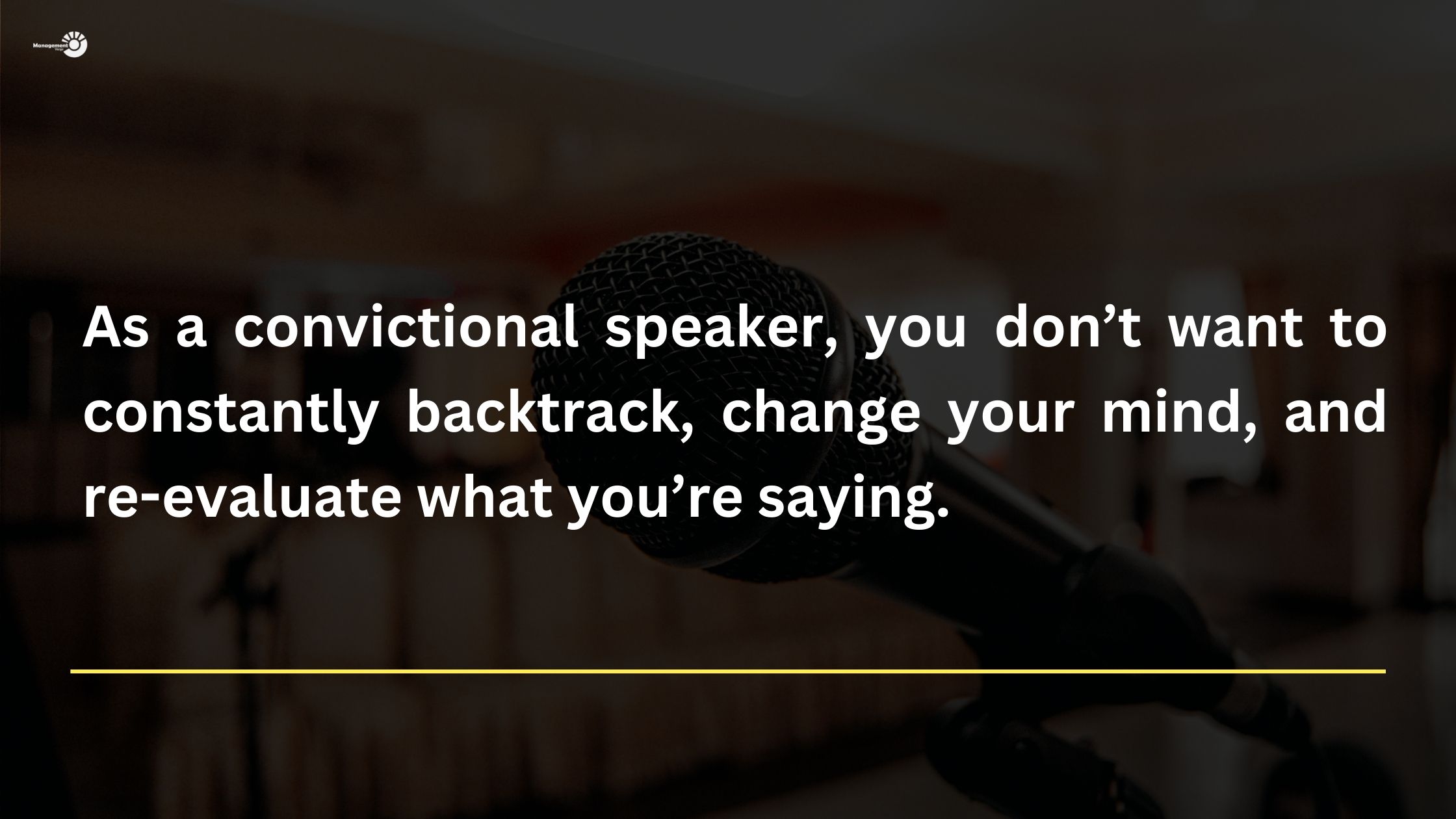
When you commit to something, you need to know that you’re going to stand by your words. You don’t want to have to constantly backtrack, change your mind, and re-evaluate what you’re saying. This doesn’t mean that you have to be set in stone about everything, though. It’s okay to change your mind, but you should communicate that clearly. Let the other person know that you’ve changed your mind or that your opinion has changed. For example, “I know you wanted me to commit to this project. I’ve changed my mind, though. I don’t think I’m ready to do this.” Or, “I’ve thought about it and I no longer agree with that stance.”
8. Take a deep breath before speaking
It is said that the average person speaks at 135 words per minute. This means that we speak for about ten hours a day – and this is not including our internal thoughts. But speaking with others and or in public is a different scenario. It’s no wonder we often forget what we want to say or how to say it when we speak in a meeting, seminar or formal presentation! If you feel anxious to start your speech, don’t be annoyed. Take a deep breath and start talking with confidence and honesty.
Summary of Speak With Conviction
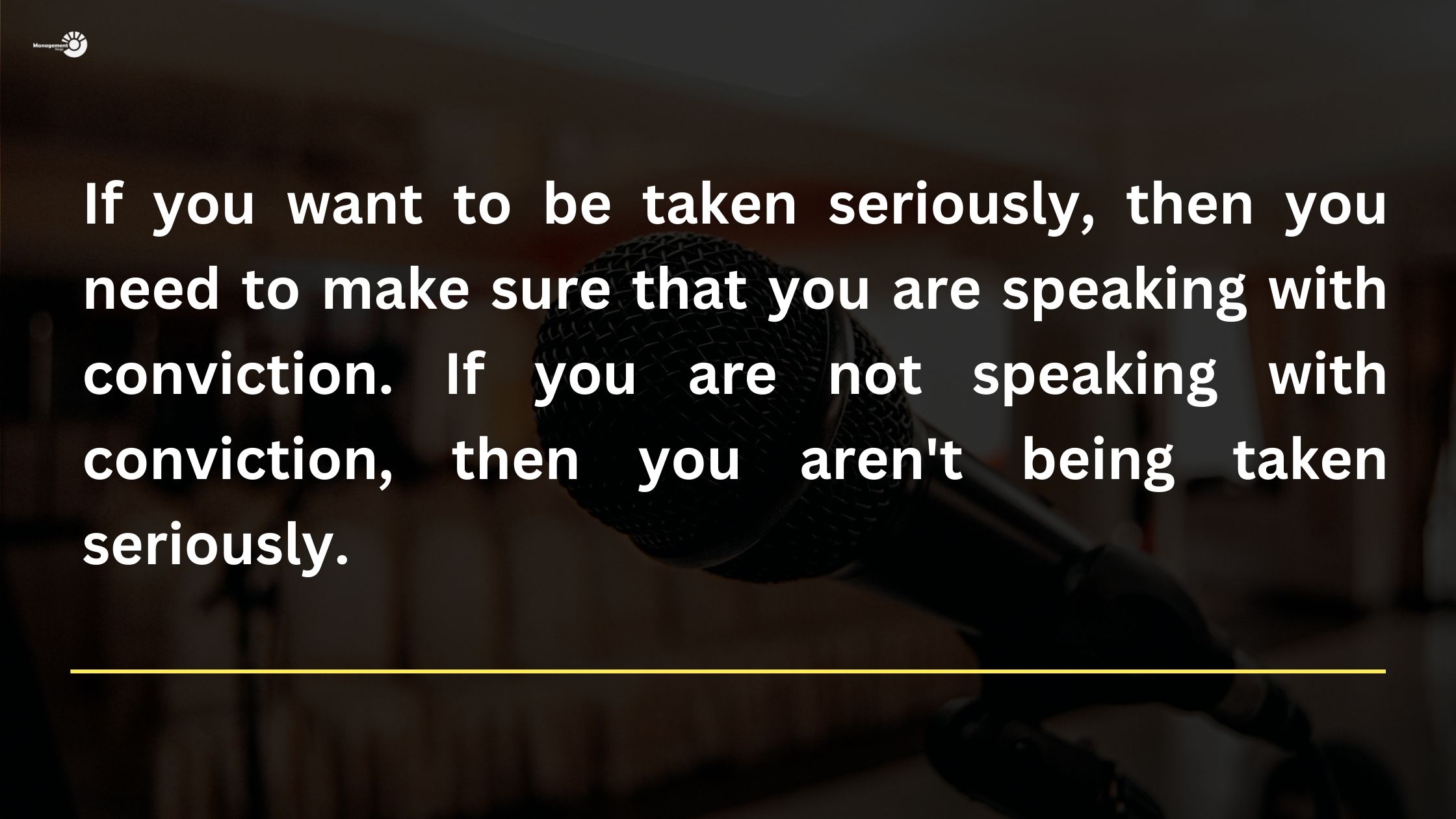
Speaking with conviction can often feel like a struggle. It’s so easy to second-guess your own words and lose confidence in your message. But it is an essential skill for any professional and becomes even more important when you’re on camera. Standing by what you believe in and speaking with conviction can be a scary thing to do. After all, you’re putting yourself out there and being judged based on what you say.
However, it’s admirable to speak with conviction. It shows that you have integrity and that you know what matters most to you. You’re also likely to inspire and encourage others with your words. If you want to be taken seriously, then you need to make sure that you are speaking with conviction. If you are not speaking with conviction, then you aren’t being taken seriously.



Comments